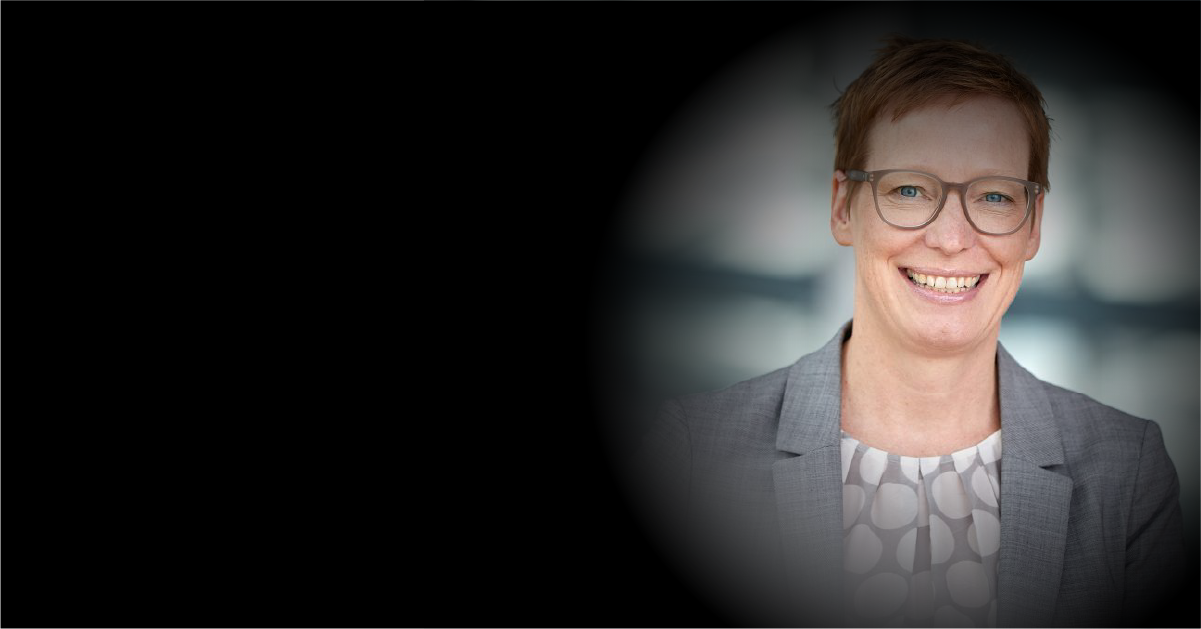The airline industry was hit the hardest during the pandemic as the number of global passengers drastically reduced to 1.76 billion compared to the 4.5 billion before COVID-19. As chief financial officer (CFO) of Brussels Airlines, Nina Oewerdieck was tasked with overseeing a crisis that saw the role of finance changing from one of support to strategy.
In this interview, we dive into and talk about how Oewerdieck approached the challenges as a finance leader in the airlines’ industry, how she managed and encouraged a “change” mindset, and the traits of a modern CFO in a post-pandemic world.
Weathering The Crisis and Challenging Legacy Habits
COVID-19 has pushed many financial executives beyond their traditional role as a support for an organization. To weather the crisis caused by the pandemic, the role and scope of the CFO function have expanded to include leadership roles and to act as an agent of change.
As CFO of Belgium’s largest airlines, it was a challenge for Oewerdieck to ensure that the company survived during the pandemic. However, focusing on flexibility and challenging legacy habits proved to be the key factor in Brussels Airlines’ survival.
How were you forced to change your role as a CFO for Brussels Airlines? What were your challenges and key focuses as a finance leader during the pandemic?
For us as an airline, it was the heaviest crisis we have ever seen. We were used to managing crises such as “9/11”, the bird flu, or the bomb attack in Brussels 2016. But this crisis was heavier and longer than expected and even caused that Brussels Airlines’ fleet to be grounded for several weeks in 2020. That means we were not able to operate any flights, and really, to come out of this crisis was a tremendous challenge for everybody.
Our priority was to save the company and we were in discussions with the Belgian state to get a loan to overcome these challenging times. It was a heavy challenge for everybody, not only on the personal side, to safeguard the future of this company and its employees.
We made it through the crisis with very strict cash management and changing our perspective from EBIT-driven and bottom-line to a cash focus. We switched to micro-management on a C-level and challenged every single expenditure, every flight that we were operating to make sure all our operations were cash-positive, meaning covering all variable costs. That was the change in our view.
How did you make the change from support to strategy from a finance position and grow the business? What were the initiatives you had to take and what can other businesses learn from this?
We are not yet in a position to talk about substantial growth. I would love to focus a little bit more on strategy because we are still in crisis mode. And we are tackling this very carefully. However, it was part of our business plan, which we also went through with the government, to do a very thorough restructuring of the company.
The focus was not to get the money to overcome this challenging period and go back to “normal”, as it was pre-COVID. It is our responsibility not only to lead the company through this crisis but also to do a restructuring to come even stronger out of this and to reach structural profitability.
What that meant was to challenge the setup of the company, the size of the company, and to question how we have done things before. The crisis allowed us to use the momentum to get rid of some legacy habits and issues.
As a CFO, we need to have a business focus. Not only just as the support role, to provide the data and the numbers, but to also understand the business and to see what the business needs are and then, to jointly find a solution on the financial side.
I think, we have to be able to play different roles: Our finance departments have to provide data, consultancy and support the business with all their knowledge to find the best way for the company. And at the same time we – as CFOs – have to take our C-level responsibility serious and sometimes have to act differently to what our departments recommend, e.g. when it comes to business cases that only foresee a low or negative contribution to the bottom line proposing an investment which will (only) safeguard our market position vs. competition. Usually, these business cases don’t come with a return rate, they are labeled as ‘strategic decisions’.
Pushing Change Through Communication and Commitment
The pandemic has shown that businesses that are willing to change and adapt will be the ones that survive through the major disruptions. Encouraging change and overcoming legacy operations were key factors for Brussels Airlines’ ability to withstand the COVID crisis.
For Oewerdieck, COVID-19 meant an opportunity to push for change in the processes and take steps towards digitalization. At the same time, overcoming the challenges that come from encouraging change in an industry that is set in its ways.
Change is always hard for any company. Was it an uphill battle for you to implement change during a crisis?
It was an uphill battle. The need for change was very visible in our situation, which provided good momentum for us to go through this restructuring. Everybody in our organization understands that we can’t go back to how it was before, after the crisis.
So the need for change was tangible and we were in this position to set up an organization with the right people in place and to define the right size. To go through such a crisis, to go through a restructuring, and to set up a state-of-the-art finance organization, you need to have the right people in place. People who are willing to change, who like change, and maybe also drive the business through change with new ideas and openness.
How do you encourage change within the workforce? What were the challenges and initiatives you had to push for?
It was a lot of communication work, people-driven communication work. We were very transparent and kept everyone informed throughout. We had to let them know that we were fighting for their jobs and to keep them in our company.
It was important for us to give them confidence, prove the commitment to the company, and let them know what the current status is so that they are always involved and to let them be part of the change.
We involved our people, encouraging them, and let them come up with ideas on how to make this “change” happen. One of the positive aspects of this current situation is that it allows you to foster talent.
Of course, we are still currently in crisis mode so there’s a lot of micro-management and usually, talents are not very positive on this, but that’s the challenge, to keep them on the right track and to show that there is some light at the end of the tunnel. And finally to find the right momentum and time to steer back and to give back ownership.
The Modern CFO and Bridging The Digital Gap
The CFO role in a post-pandemic landscape has gone beyond just being a financial executive. Finance leaders today need to take on the role of digital transformation bastions and as people leaders.
Throughout her time as CFO for Brussels Airlines during the pandemic, Oewerdieck realized and highlighted the fact that the traditional roles of a CFO have to be more than just the numbers and the path towards digitalization and growth starts from the top.
Digital transformation is top-of-mind for many businesses today. How should CFOs approach and encourage digitalization for their organization?
In my opinion, we have to reverse our approach and let change and digital transformation be pulled by our people. If you are just saying from the top of management “this is the way want to go” or figure out the next tool, that does not work because the strength of the organization will be too heavy to fight against that.
I had good experiences with implementing smaller lighthouse projects to make robotics, automation, or digitalization a little bit more tangible to the people so that people don’t have to fear it.
It shows that we want to foster and focus on their knowledge for higher quality work. A skill set of a financial expert can’t be used only to compile reports – we need their expertise, their knowledge to read a story out of numbers.
With lighthouse projects we can prove that there are benefits for the entire organization and also for our people, that will make acceptance easier and even let them pull new ideas.
In your point of view, what are the necessary traits for a modern finance leader? What is the duty of a CFO in a post-pandemic landscape?
From my point of view, CFOs nowadays do not have to be the best expert. Rather, you have to be a people leader, to encourage your people, to listen to your people, and to steer them through uncertainty, or even into profitability, and to reach growth and to let them grow.
We have to be very open to change, to new ideas, and to challenge our company and our people about which new ideas are out there, such as robotics, automation, or artificial intelligence.
I think that’s one of our major duties as CFOs. To steer the organization, to foster our talents, and let them rock in the end.



